How a Cumbrian Community is Building Working Class Confidence
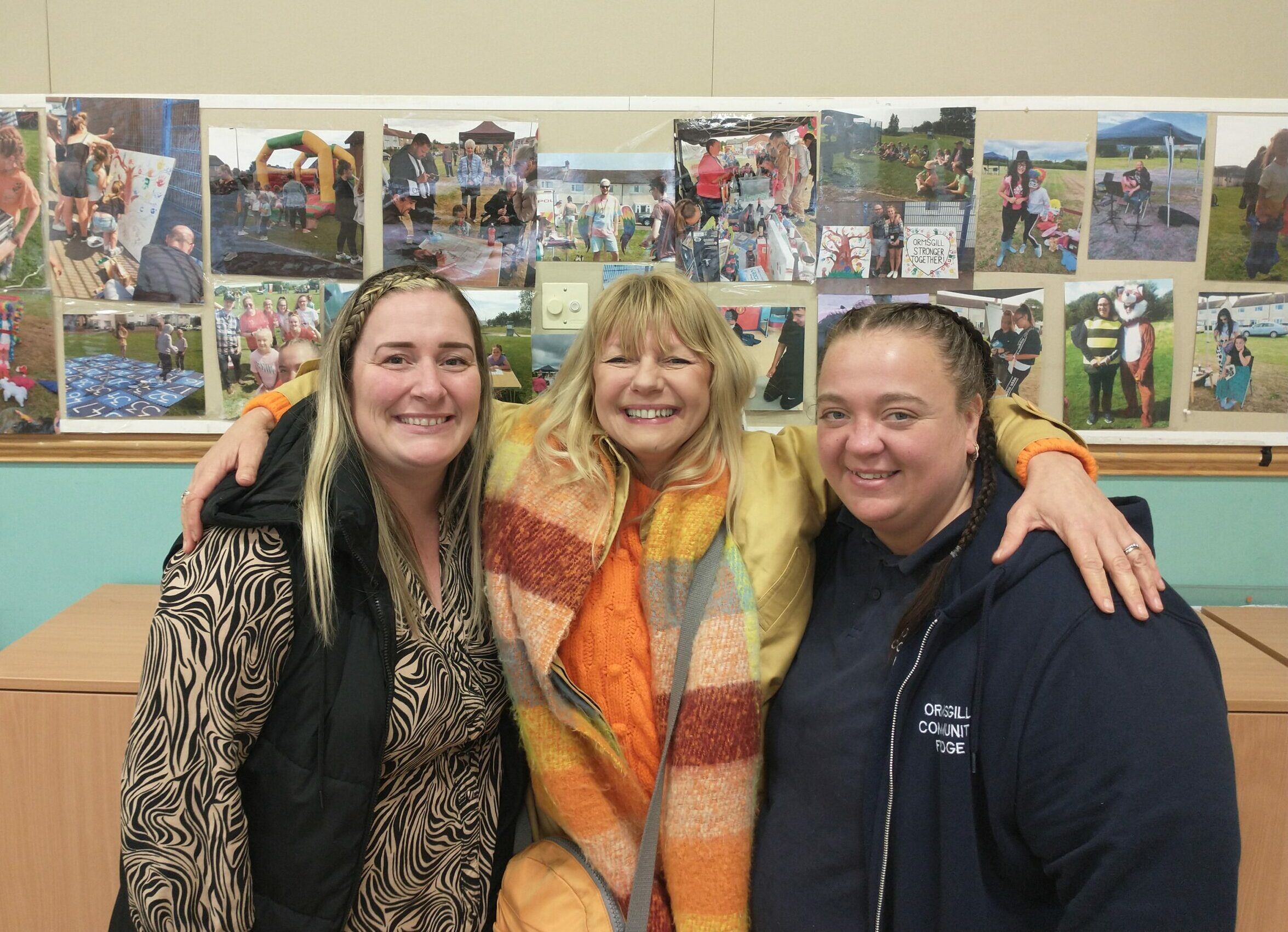
It’s a Friday morning on the edge of a council estate in Barrow-in-Furness, and Jade Duke and Terri Prophet are making rounds of toast for a well-attended coffee morning. Punters get a choice of white or fruit teacake plus a tea or coffee, free of charge. Despite the cold outside, it’s warm in this community centre hall, and the atmosphere is buzzing with chat.
The coffee morning is a local ‘warm hub’ – think of a food bank for sitting in central heating – and one of many that have cropped up since the onset of the cost of living crisis. Situated in Ormsgill, one of Barrow’s (and the country’s) most deprived areas, it’s run by a team of local volunteers under the banner of Ormsgill Stronger Together (OST). The group also organises a stitch class, litter-picks and an annual summer fun day, amongst other things, all evidenced by photos lining the room.
Last year OST secured support from the charity Hubbub for Cumbria’s first community fridge, which is proving popular this morning. “We’ve saved 29,733.65 tonnes of food from landfill,” says Jade. She recalls the number from memory. Still, despite generous support from the Co-op, as well as the local Nisa and Spar, demand is outpacing supply.
The hall feels like a big front room, with the radio playing and pockets of people chatting and joking. Jade and Terri’s food preparation qualifications hang above the kitchen corner, from which hot drinks and plates of toast are shuttled across the room. Both have been here since 8.30am, yet they are upbeat and charming with everyone who comes in. I wonder when they get time for themselves, around childcare responsibilities. “This is my time,” Terri smiles. “Getting involved has helped me mentally – I was stuck in a rut.”
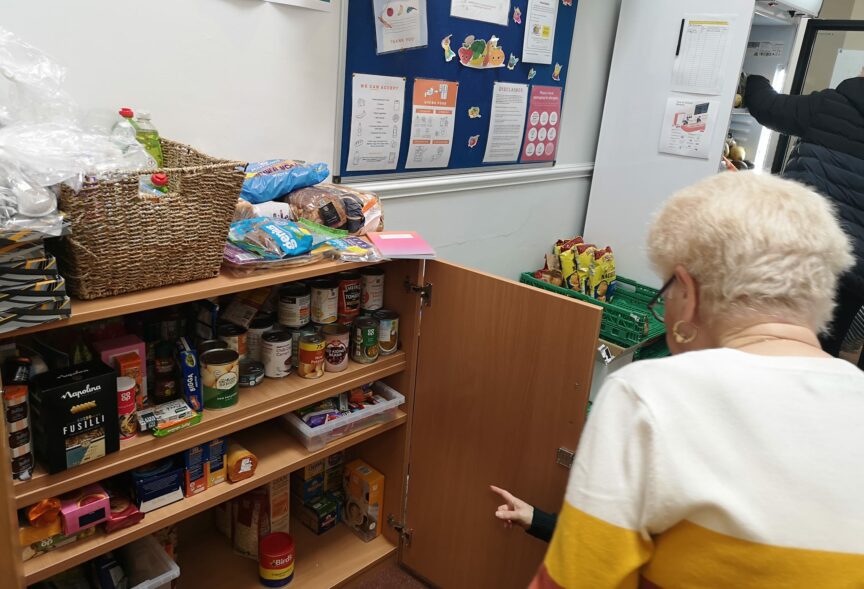
Jade and Terri also volunteer as community commissioners with the Barrow Poverty Truth Commission (PTC), an initiative to empower people in poverty and inform action across Barrow. It brings community commissioners – people with lived experience of poverty – into dialogue with public services, businesses and the third sector. Coordinator Kate Love says the project has been a year in the making and seeks to foreground people’s experiences of poverty, but it’s also about forging relationships. It’s building on something of a recent tradition: Kate explains that since the pandemic, a variety of local community groups have got to know each other personally and are now pooling bits of knowledge. “Everyone really cares about each other,” she says.
Following a meeting of a knitting group in the lobby of Barrow’s Holiday Inn, I meet Nicola Bull, tenants’ voice for Roosegate council estate, a lifelong mobility scooter user, and another community commissioner with the PTC. She acts as a neighbourhood representative to the council. “People come to me for someone to speak up for them if they don’t feel listened to,” she tells me. “I give them a voice when people in power make them feel inadequate because they haven’t got jobs and the rest of it.” A lot of the queries she receives relate to the local drugs trade – Barrow is a ‘hotspot’ for heroin misuse deaths – while others concern the part of the estate which is literally sinking due to coastal erosion.
Nicola hopes the commission can bring about change by developing people’s understanding of the experience of living in poverty. “People don’t know what it’s like to live on benefits, to live on disability benefits,” she says. “If we can get that message across, they might think twice before saying we’re scroungers or dossers. They just don’t even think.”
It’s a steep hill to climb. The commission aims to bring to the table those who are positioned to enact change in the local area, from public services to BAE Systems. The weapons contractor dominates Barrow’s public life, economy and shoreline, and recently dismayed residents by taking over a shopping precinct. But just as hard is overcoming the toll poverty has taken on the community.
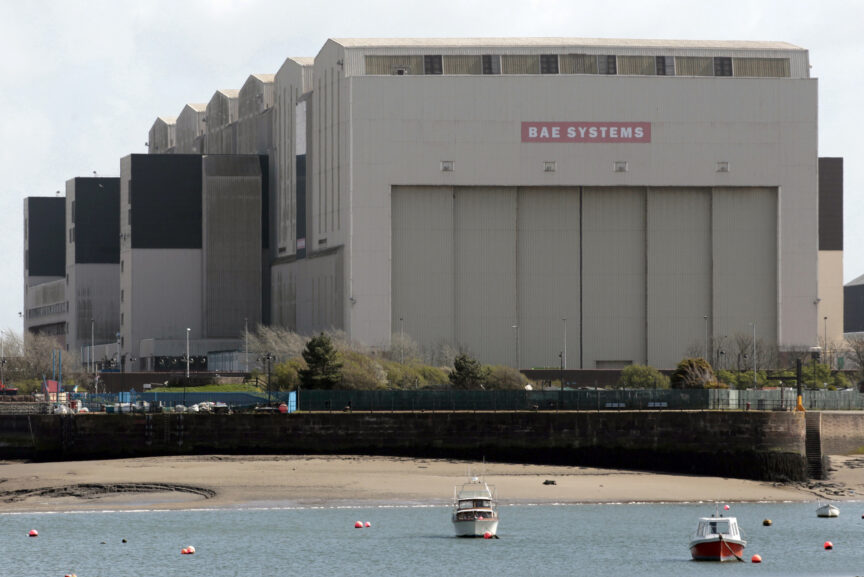
In a warm spot at Spring Mount Church, soup and sandwiches are being served free of charge to visitors. It’s a bustling venue, with the sound of music, children and chatter making it difficult for anyone to hear each other. Kate is meeting a handful of her commissioners here – a pair of sisters in their early 20s and a couple in later middle age – where casual conversation naturally turns to the reality of poverty in Barrow.
The stories shared read like an indictment of the state across all its institutions. Repeated exclusions from school. Indifference from social services. A childhood kidnapping by a man who turned out to be a paedophile – let off with “a slap on the wrist”. Rape and abuse, including by a man who was let off on the grounds that he had ambitions in the Navy. One of the older couple is going blind; by way of support he was offered a free radio (he tells me he once went blind before following an injury, so he reckons he’s “used to it”). Across everyone’s stories, local government, welfare services and the third sector are mentioned with equal scepticism.
But it’s stories about mental health that predominate. Everyone around the table reports anxiety, and is able to list off a further roll of mental diagnoses, from the pedestrian to the severe, many seemingly diagnosed following minimal contact or support. Each one is a blow, compounding every negative thing a teacher, social worker or police officer has said or presumed about them. In national discourse, the anxiety epidemic is rarely far from commentators’ lips; less topical is this sort of epidemic – the health effects of generational poverty.
And yet week after week, those same people turn up to PTC meetings, and the commissioners have found both community and common cause amongst one another. “I just get blown away by how generous people are – with me, with their stories. It’s really beautiful,” says Kate. “And we laugh a lot. We have to because it’s dark – what people get used to is horrifying, actually.”
Perhaps curiously, poverty itself – or money more generally – is rarely the topic of conversation. “We moan a bit in the corner shop about the gas and leccy, but people aren’t sitting around moaning about how skint they are,” Kate explains. “Everyone’s just caring for each other.”
She recalls an early commission meeting where the topic of conversation was ‘how much money is enough?’. “We were talking about rich people being tight, and [a commissioner] said: ‘I don’t think the opposite of poverty is money; I think the opposite of poverty is community.’”
Nicola agrees. “We have a great community in this area,” she says. “Not much else. No jobs. We’ve no money. But the community is outstanding.”
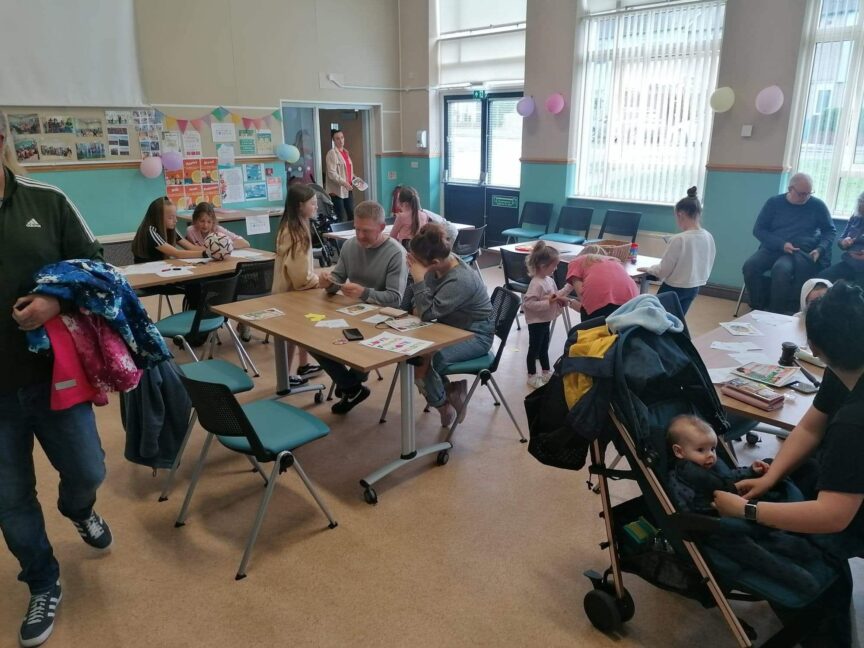
As people are packing up at Ormsgill, chuckles are spreading about the unfortunate demise of a hamster, bought for £6.50 by a visitor as a present to her granddaughter. After a short illness, it cost £120 to euthanise. The granddaughter successfully pleaded against it being buried in the garden; apparently hamster cremations come in at £198 these days.
At the heart of the merriment is Simonetta Tiribocchi – Sim for short – a community development officer who works out of a part-time team at Cumbria County Council. She played a key role in helping OST get set up, but she’s keen to emphasise that it’s the volunteers who do the running. “We call it mutual aid,” she says proudly. The others agree.
Sim tells me what people are doing is building something for themselves and their community where they didn’t know they could, with a growing sense of pride to match. “They’re practically running a business,” she says. “They’re helping other people.”
“Ormsgill gets slated,” says Terri. “They say we’re all drug addicts and we’re all this and we’re all that, and people are like, ‘Oh I won’t move up Ormsgill’, but until you live up here, you don’t know what it’s like and do you know what? The community spirit up here is absolutely amazing.”
Watching the OST volunteers at work, there’s a clear sense that whatever happens with their funding, they’ll continue to have each others’ backs. By building relationships with one another, they’ve been able to share out their skillsets while developing a keen sense of what does and doesn’t work: a recent argument with the council about hiring a bouncy castle for a summer fun day was motivated more by their recruitment strategy than might at first be apparent.
Sim says Ormsgill is becoming a totem for what can be achieved. “People look at Ormsgill and say: ‘God, that’s a real exemplar of how communities come together and [it] works really well’, and they’ll say: ‘We want that’.”
“You can have it,” she says. “But the people are the people who make this.”
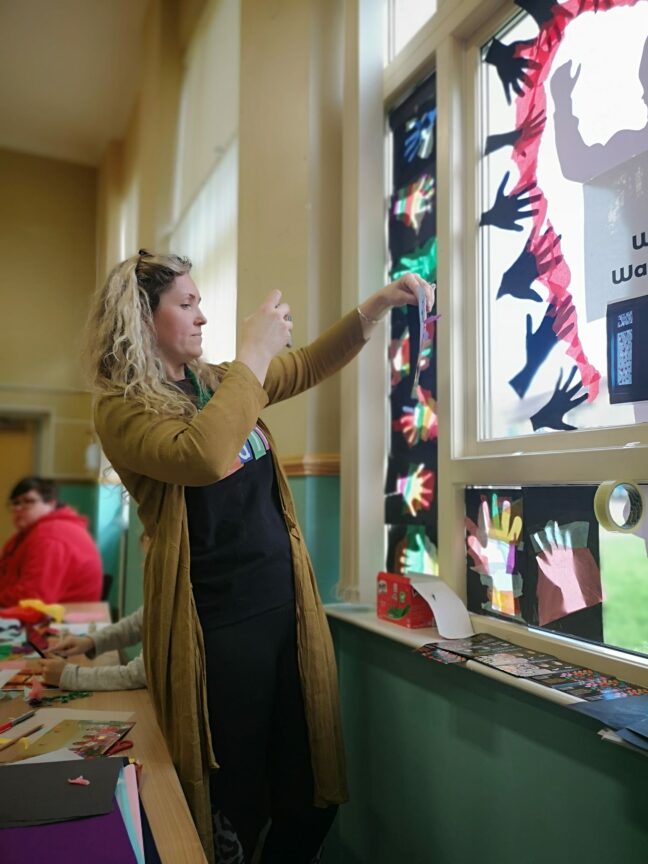
This wasn’t a given however. The most widely uttered watchword of the day’s conversations is confidence. It’s a word I didn’t expect to hear so much, but it’s a journey every single person I’ve spoken to is on.
“I’ve really come out of my shell now from what I was,” says Jade. Having seen her running the coffee morning, it’s hard to imagine her otherwise. But Jade explains she went through a phase of not even leaving the house due to anxiety.
“I’ve had jobs, but more like cleaning jobs where I was working on my own,” she says. “It was only like weekend work or a few hours in the week. I always targeted those sorts of jobs so I didn’t have to see anyone. Some of these probably wouldn’t believe I was the way I was.”
With people clearing up around us, I ask if Jade and Terri could sum up what being involved in OST means to them. “Oh I hate this, when you’re put on the spot!” says Jade. “Yep,” Terri agrees. “But do you know what? Doing this has helped my mental health, and I think it’s the same [for both of us].”
“Seeing people every day, from seeing no one – it’s so much better,” says Jade.
“It literally makes you stronger together,” I suggest.
“It does!” they both shout. “That’s perfect.”
Readers can support Ormsgill Stronger Together on Crowdfunder.
Craig Gent is Novara Media’s north of England editor and the author of Cyberboss (2024, Verso Books).


